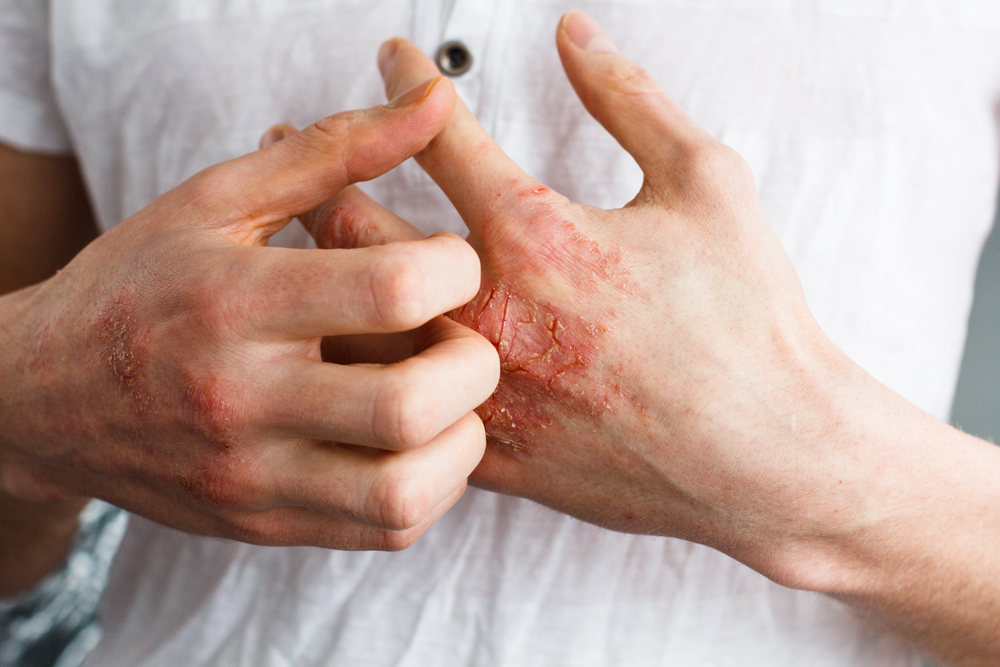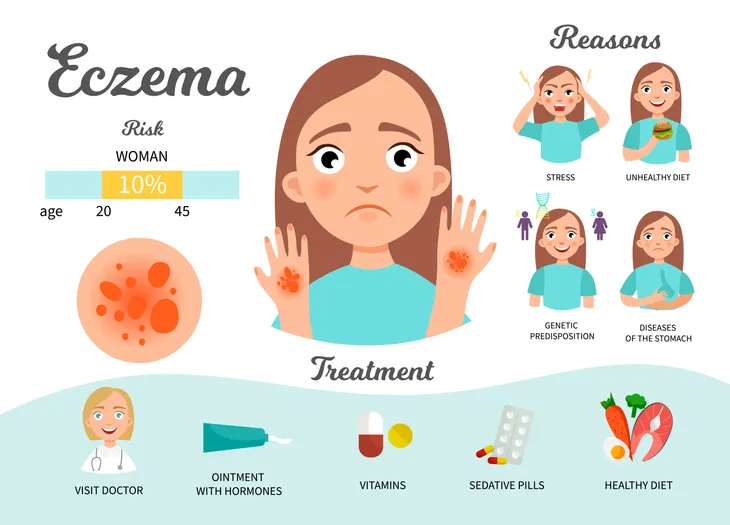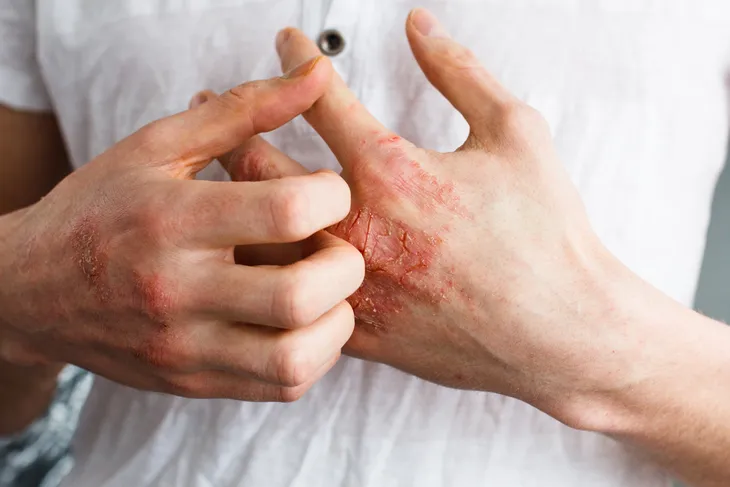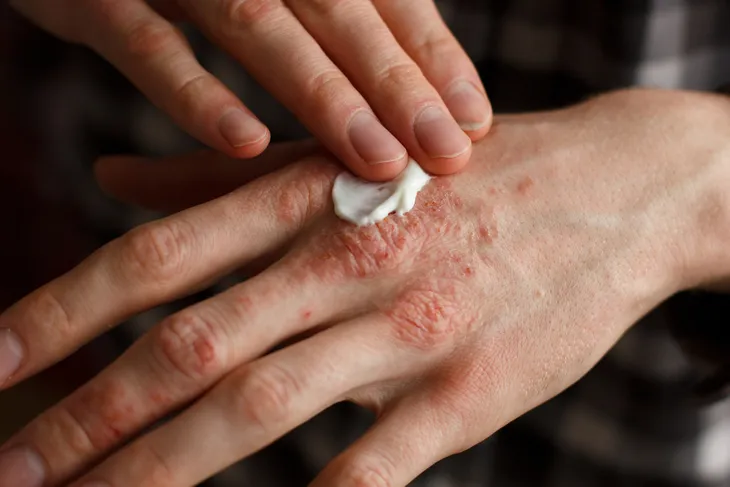Is your skin itchy, red, cracked, or feeling rough? You might be dealing with something more serious than dry skin. You could be experiencing the first signs or symptoms of eczema. While eczema is pretty common – about 31.6 million Americans are affected by it – it can be both uncomfortable and frustrating to live with.
When you have eczema, your skin can experience some serious rough patches. You might experience itching, inflammation, or even blistering. Fortunately, there are plenty of treatment options for eczema. However, before you can begin any type of treatment, it’s important to determine whether you’re dealing with eczema or another health condition.
Here’s what eczema looks like when signs and symptoms appear and how it can be treated.
What is Eczema?
Eczema is a term used to describe inflamed and itchy skin. There are many types of eczema including hand eczema, nummular eczema, and most commonly atopic dermatitis. It sometimes is used interchangeably with atopic dermatitis because of the prevalence of the latter.
Although eczema is commonly found in infants and children, adults can develop it. About half of those who develop eczema as children continue to experience symptoms into adulthood. Sometimes, eczema can appear with other conditions like asthma or hay fever.
There’s no known cure for eczema. It’s a chronic condition that can be present for your entire life, coming and going with flare-ups. However, you do not need to worry. With the right treatments and some self-care, you may be able to relieve its symptoms and prevent new outbreaks from happening. Plus, some individuals – particularly children – can outgrow the condition over time.
Symptoms of Eczema
Eczema might sound easy to notice. Redness and itchiness on the skin are two obvious symptoms. But, like many health conditions, eczema isn’t always so clear-cut.
Symptoms of eczema can vary from person to person. Your age can affect how they appear, and so can the state of your skin. Symptoms can look a bit different in infants, children, and adults.
Symptoms in infants under 2 years of age typically include:
- Rashes on the scalp;
- Rashes on the cheeks;
- Rashes that bubble up, then leak fluid, and;
- Rashes that cause extreme itching that interferes with sleep.
Symptoms in children ages 2 and up typically include:
- Rashes in the elbow creases;
- Rashes behind the knees;
- Rashes on the neck;
- Rashes on the wrists and ankles;
- Rashes that become bumpy;
- Rashes that change colors, and;
- Thick rashes, which harden and develop knots.
Symptoms in adults (age 18 and older) typically include:
- Rashes in the elbow creases;
- Rashes behind the knees;
- Rashes at the nape of the neck;
- Prominent rashes on the neck and face;
- Very dry skin;
- Permanently itchy rashes;
- Scaly rashes, and;
- Rashes that lead to skin infections.
One important detail to note about eczema symptoms is that they can appear and disappear. People typically experience eczema flare-ups, where symptoms worsen and become more obvious. These flare-ups are then followed by periods of time where there are no symptoms at all. It’s important to track the symptoms you’re experiencing and how often flare-ups might be happening.
Keep a close eye on any changes to your skin. If any symptoms or rashes become so uncomfortable that they affect your daily activities or your sleep, it’s time to see a doctor.
How Eczema is Treated
Although there isn’t a cure for eczema, you don’t have to resign yourself to living with its symptoms. There are a large number of treatments available that you can try.
The treatment goal is to prevent skin barrier and minimize outbreaks and flares. This starts with gentle skin care and topical treatments prescribed by your dermatologist.
If you have a mild case of eczema, you may be able to treat your symptoms by adjusting your habits. Natural remedies may also be effective. If you have a severe case of eczema, you may need to try a combination of different treatments. You might also see success with medicine.
The commonly recommended treatments for eczema include:
- Taking short, warm showers instead of very hot, long showers;
- Managing stress with relaxation techniques;
- A humidifier;
- Over-the-counter creams or ointments;
- Prescription creams or ointments;
- Antihistamines;
- Oral steroids prescribed by a doctor;
- Ultraviolet light therapy;
- Prescription medication that works on the immune system, and;
- Injectable medications administered by a doctor.
Make sure to discuss your symptoms, concerns, and unique case of eczema with your doctor. It’s important to get professional advice regarding different treatment options. Together, you and your doctor can determine which treatments promise the most success for your symptoms and flare-ups.
If you’re looking for ways to relieve your eczema symptoms, there are several over-the-counter and natural treatment options. You can research these possible options, discuss them with your doctor, and begin working towards fewer symptoms.






